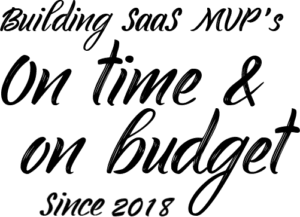Michael says that during his company's journey, they have used a wide range of software. They later realized that many businesses were struggling with taking payments. Technology has evolved, allowing companies more options to receive payments remotely.
However, many entrepreneurs do not understand how to go about it, especially with the numerous payment options available. Michael is quick to explain that there are many user-friendly payment options available, but they are limited. He says Spiffy is committed to ensuring that non-technical people can take payments easily.
According to Michael, advanced technology should not be a limiting factor when it comes to making payments online. When Michael and his co-founder started Spiffy, the company grew suddenly. Spiffy was working with some of the biggest customers in the industry, and this propelled them to the top.
Success did not come easily, as Michael and his team, were working long hours to beat deadlines and satisfy customer demands. Even though the results of their hard work were visible, Michael and knew they could not continue working long hours in the future. He shares the challenges they faced before changing Spiffy to a SaaS platform. Michael tells Geordie how they had numerous ideas they thought were viable for the business.
Listen as he tells Geordie how they finally narrowed down their plans to come up with the right formula for the company. Michael speaks about the four-step process that they used as a guide to achieving their goals. For example, a service provider should strive to solve an existing problem. The target audience should understand that they have a problem that needs to be addressed. Michael discusses the remaining six steps with Geordie, and you cannot afford to miss them.
Launching a company may be easy, but getting customers can be a challenge. Michael says they had a marketplace from their consulting clients because they were custom coding the order forms in the beginning. He says this move helped Spiffy carve a name for themselves, and connected with some of the big names in the industry.
Even then, Michael says they managed to visit some of their clients, something which turned out to be pain-point. Michael explains that while they charged customers for their services, implementing the service took long.
One day Michael suggested that they needed a strategy to productize their process. Listen to find out what happened next, and how Michael walked from booth to booth during an even to market Spiffy. Some of the people Michael spoke to then were skeptical, claiming that numerous competitors were doing the same thing. Such comments did not break Michael's desire to build a robust platform.
He mentions that they knew they would one day prove the naysayers wrong. Still, they also knew that the platform they had envisioned was not the one they had developed. To gain satisfaction and ensure that their customers were comfortable, Michael decided to transform it to make it more robust and effective.
Over the years, Spiffy evolved and even shot some how-to videos in a bid to solve customer problems. With Spiffy was no longer an agency, Michael and his team decided to wind it down. However, they are still working with some consulting clients. Michael shares a lengthy and detailed conversation with Geordie, where he explains how building an app for one company increased their growth.
However, he admits that many of the calls they received were about the other company and not Spiffy. Still, the company has managed to remain ahead of many competitors in the market.



